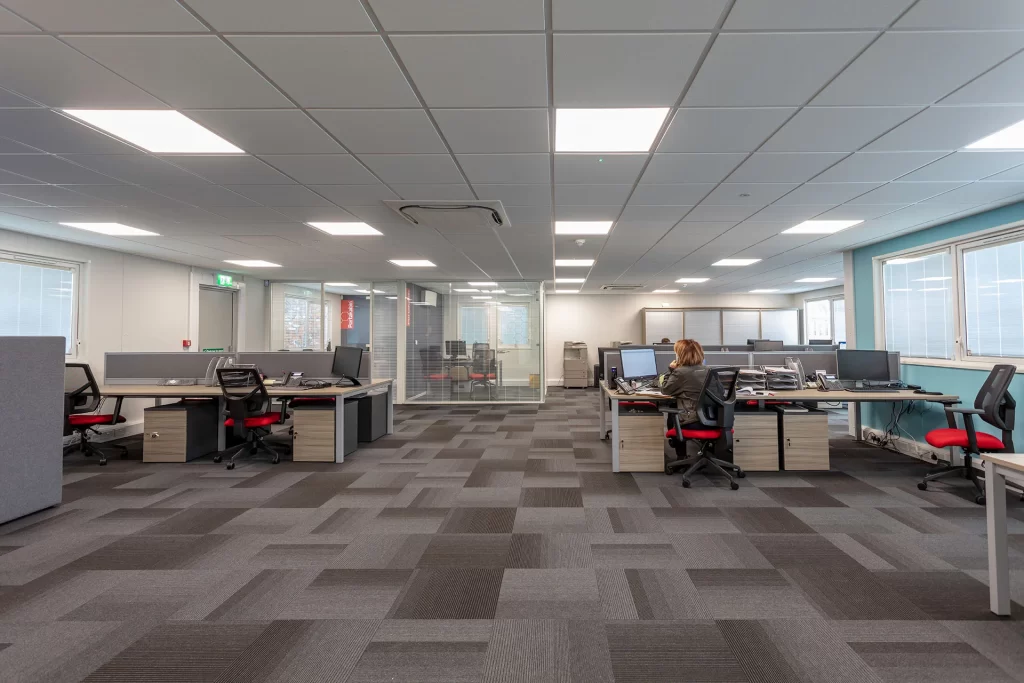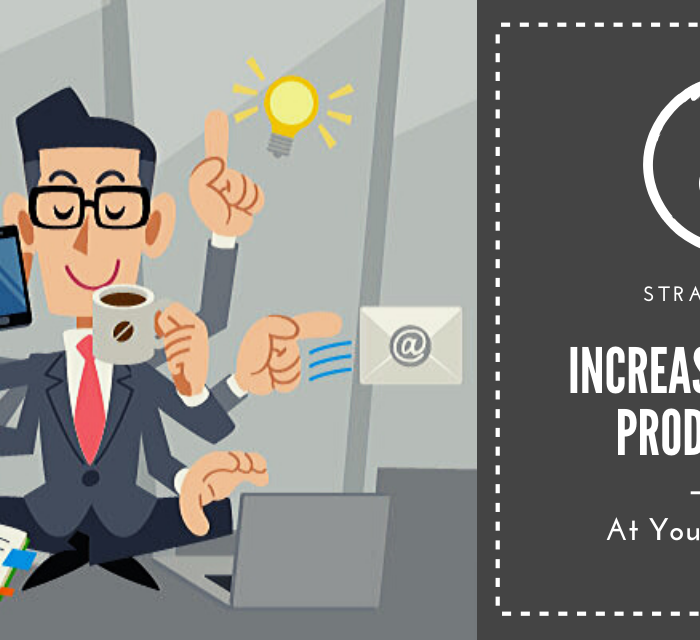Do you need help deciding whether to rent a temporary or permanent office space for your business? It’s a common conundrum that many business owners face, as both options have their own pros and cons.
But don’t worry. We’ve got you covered! In this article, we’ll delve into the world of temporary and permanent office spaces and compare the two to help you make an informed decision. We’ll consider factors such as cost, flexibility, and duration of use to give you a comprehensive understanding of the benefits and drawbacks of each option.
So, whether you’re a small startup or a well-established company, this article will provide valuable insights to help you choose the best office space solution for your business. The right decision could make all the difference to your company’s success, so let’s get started!
Temporary Office Space Vs Permanent Office Space: What Is A Temporary Office Space?
Temporary office space is a short-term rental space that is used as a workspace. Temporary office spaces can be a good option for businesses that need a flexible, affordable workspace temporarily. Examples of situations where a temporary office space might be useful include:
- A business that is moving to a new location needs a temporary workspace while the new location is being set up.
- A business experiencing a temporary increase in staff needs an additional workspace to accommodate the additional employees.
- A business that is expanding into a new market needs a temporary space to establish a presence in the market.
- A business that is working on a short-term project needs a temporary workspace to complete the project.
Temporary office spaces can be rented daily, weekly, or monthly and are often fully furnished and equipped with amenities such as internet access, printing, and conference rooms. Some temporary office spaces may offer additional services such as receptionist support or mail handling.
Temporary office spaces can be a good option for businesses that want to avoid the commitment and costs of a long-term lease or building an office space. However, they may not be suitable for businesses that need a more permanent workspace, or that want to customize the space to fit their specific needs.
Looking to rent a good and affordable office space for your business? Book a tour with us at CHURCHGATE to choose the office space of your dreams.
Temporary Office Space Vs Permanent Office Space: What Is A Permanent Office Space?

Permanent office space is a long-term workspace that is used by a business continuously. A business can own or rent permanent office spaces, either by standalone buildings or spaces within larger buildings.
Permanent office spaces are typically used by businesses that need a fixed location for their operations and want to establish a long-term presence in a particular location. Examples of businesses that might need permanent office space include:
- Large corporations with significant employees and a wide range of operations.
- Small businesses that have outgrown their home office or coworking space and need a dedicated workspace.
- Non-profit organizations need a central location to conduct their operations and serve their clients.
Permanent office spaces can be customized to fit the specific needs of a business and may include features such as private offices, conference rooms, break rooms, and other amenities. Some permanent office spaces may also offer additional services such as receptionist support or mail handling.
Permanent office spaces offer many benefits, including a professional image, a fixed location for employees and clients, and the ability to customize the space to fit the business’s specific needs. However, they may be more expensive than temporary office spaces and may require a long-term commitment and upfront costs.
We also offer permanent office spaces at CHURCHGATE. Book a tour with us to choose a suitable office space to advance your business growth.
Temporary Office Space Vs Permanent Office Space: The Major Differences

Temporary office spaces and permanent office spaces are different in a number of ways. Here are some key features that distinguish the two:
Ownership
First on the list while comparing temporary office space vs permanent office space is the ownership. You do not own the property when you rent a temporary office space. You are essentially paying to use the space for a specified period of time. But for permanent office space, you own the property and have the right to use it as you see fit.
Customization
Another thing to check while considering temporary office space vs permanent office space is the customization. For a temporary office space, you are generally limited to the layout and features of the space as it exists. You may not be able to make any major changes or renovations to the space. But you can customize the layout and features of permanent office space to fit your specific needs and preferences. This can include the layout of the space, the finishes, fixtures, appliances, and any other features you want to include.
Control
Next on the list for temporary office space vs permanent office space is control. Renting a temporary office space gives you limited control over the property. You are required to follow the terms of your lease, which may include restrictions on how you can use the space and what changes you can make. But for permanent office space, you have more control over the property and can make changes as needed. However, you will still need to comply with local building codes and zoning regulations.
Commitment
Temporary office spaces usually require a shorter-term commitment than permanent office spaces. When renting a temporary office space, you typically sign a lease for a set period, such as one year or three years. But for permanent office space, you make a longer-term commitment to the property. You will be responsible for the maintenance and upkeep of the property and may need to stay in the space for a longer period of time to recoup your investment.
Upfront costs
Renting a temporary office space typically requires no upfront costs. You will need to pay a security deposit and possibly some other fees, but you will not need to invest a large amount of capital upfront. Permanent office space requires a significant upfront investment. You will need to purchase the property, pay for the construction or renovation of the space, and cover any other associated costs.
Flexibility
The last thing we would look at for temporary office space vs permanent office space is the flexibility. Temporary office space allows you to easily scale up or down depending on your needs. If you need more space, you can simply rent a larger office. If you need less space, you can downsize. This can be a good option if your business is growing or if you are unsure about your long-term needs. Permanent office space requires a longer-term commitment and may not offer as much flexibility. If your business grows or changes, you may need to make additional investments in the space or find a new location.
Temporary Office Space Vs Permanent Office Space: Pros And Cons

You cant talk about temporary office space vs permanent office space without comparing its pros and cons. There are pros and cons to both renting and building office space. Here are some things to consider:
Temporary office space
Pros:
- Flexibility: Renting temporary office space allows you to easily scale up or down depending on your needs. If you need more space, you can simply rent a larger office. If you need less space, you can downsize. This can be a good option if your business is growing or if you are unsure about your long-term needs.
- No upfront costs: Temporary office space requires no upfront costs or long-term commitments. This can be a good option if you don’t have much capital or are uncertain about your long-term needs.
- Professional setting: Temporary office space can give your business a professional image and be a good way to impress clients.
- Turnkey solution: Renting a temporary office space often includes utilities, maintenance, and other services, which can be convenient and save you time and money.
- Potential for short-term cost savings: Temporary office space can be less expensive in the short term than building an office space.
Cons:
- Limited control: When renting temporary office space, you must work within the constraints of the space you are renting. You may not be able to make any major changes or renovations to the space.
- Potential for lease increases: Your rent could increase over time, impacting your budget.
- Lack of ownership: When you rent temporary office space, you do not own the property and may be unable to recoup your investment if you decide to move out.
Permanent office space
Pros:
- Customization: Getting a permanent office space allows you to customize the space to fit your specific needs and preferences. You can design the layout and choose the finishes, fixtures, and appliances.
- Potential for long-term cost savings: Permanent office spaces can be more expensive upfront, but they may be more cost-effective in the long run if you plan to be in the space for a long time.
- Potential for asset appreciation: If you buy an office space and the property’s value increases over time, you could see a return on your investment.
- Sense of ownership: Building or buying an office space gives you a sense of ownership and pride in the space.
- Control: When you build an office space, you have more control over the design and layout of the space and can make changes as needed.
Cons:
- High upfront costs: Building or buying an office space requires a significant upfront investment, which may not be feasible for all businesses.
- Long-term commitment: Permanent office space requires a long-term commitment, as you will be responsible for the maintenance and upkeep of the property.
- Risk: There is a risk involved in building or buying an office space, as there is no guarantee that the property’s value will appreciate or that you will recoup your investment.
- Time-consuming: Building an office space can be a time-consuming process, as it involves finding a suitable property, securing financing, and overseeing the construction process.
Temporary Office Space Vs Permanent Office Space: Tips For Renting

- Determine your needs: Before looking for office space, it’s important to assess your business’s needs. Consider factors such as the size of the space you need, the location, and any specific features or amenities you require. For example, if you have a lot of employees, you will need a larger space. If you have a lot of client meetings, you may want a space with a conference room or meeting facilities. Determining your needs in advance will help you narrow your search and ensure that you find a space that meets your needs.
- Set a budget: Determine how much you can afford to spend on rent and related expenses. This will help you narrow your search and avoid looking at spaces out of your price range. Be sure to consider the cost of rent and other expenses such as utilities, insurance, and maintenance.
- Research locations: Consider the location of the office space and whether it is convenient for your employees and clients. Consider factors such as proximity to public transportation, parking availability, and local amenities. You may also want to consider the location in relation to your target market and whether the location is likely to be attractive to potential customers.
- Check the lease terms: Carefully review the lease terms before signing. Ensure you understand the lease’s length, the renewal terms, and any restrictions on how you can use the space. You may also want to consider whether the lease includes provisions for subleasing or assigning the space to another party if your business needs change.
- Inspect the space: Before signing the lease, take the time to inspect the space thoroughly. Look for any issues or problems that might need to be addressed before you move in, such as faulty wiring or leaks. You may also want to consider whether the space will meet your future needs, such as whether it has room for expansion if your business grows.
- Negotiate the lease: Don’t be afraid to negotiate the terms of the lease to get a better deal. You may be able to negotiate a lower rent or more favorable terms by offering a longer lease or agreeing to pay for certain expenses. It can be helpful to work with a real estate agent or lawyer to help you negotiate the lease.
- Get everything in writing: Make sure all the lease terms are clearly spelled out in writing and that you have a copy of the signed lease for your records. This will help protect your interests and ensure that there is no misunderstanding about the terms of the lease.
Temporary Office Space Vs Permanent Office Space: Which Should I Go For?
Whether you should rent or build an office space depends on your specific business needs and financial situation. Here are some things to consider when deciding whether to rent or build an office space:
- Needs: Determine your business’s needs, including the size of the space you need, the location, and any specific features or amenities you require. This will help you decide whether renting or building an office space is your business’s best option.
- Budget: Consider your budget and whether you have the financial resources to build an office space or whether renting is a more affordable option. Building an office space requires a significant upfront investment, while renting an office space may be less expensive in the short term.
- Commitment: Think about your long-term plans for your business and whether you are willing to commit to a particular location. Building an office space requires a longer-term commitment while renting an office space allows for more flexibility.
- Customization: Consider whether you want to customize the space to fit your specific needs and preferences. Building an office space allows for more customization, while renting an office space may be more limited.
- Risk: There is a risk involved in building an office space, as there is no guarantee that the property’s value will appreciate or that you will recoup your investment. Renting an office space does not involve this risk.
Ultimately, the best option for your business will depend on your specific needs and circumstances. It may be helpful to weigh both options’ pros and cons and consult with a financial advisor or real estate professional to determine the best course of action for your business.
Temporary Office Space Vs Permanent Office Space: Conclusion
In conclusion, deciding whether to rent or build an office space is significant for any business. Both options have their own pros and cons, and the best option for your business will depend on your specific needs and circumstances.
Renting temporary office space offers flexibility, no upfront costs, and a professional setting, but customization and control may be limited. Building an office space allows for customization and control but requires a significant upfront investment and a longer-term commitment.
When deciding which option is best for your business, be sure to consider your needs, budget, commitment level, and desire for customization. It may also be helpful to consult with a financial advisor or real estate professional to help you make the best decision for your business.
CHURCHGATE offers the best real estate advice on acquiring business properties or renting office space. We have decades of experience and are just the right team to build your business’s future with.
Book a tour with us today and see the beautiful experiences we can offer for your business.





